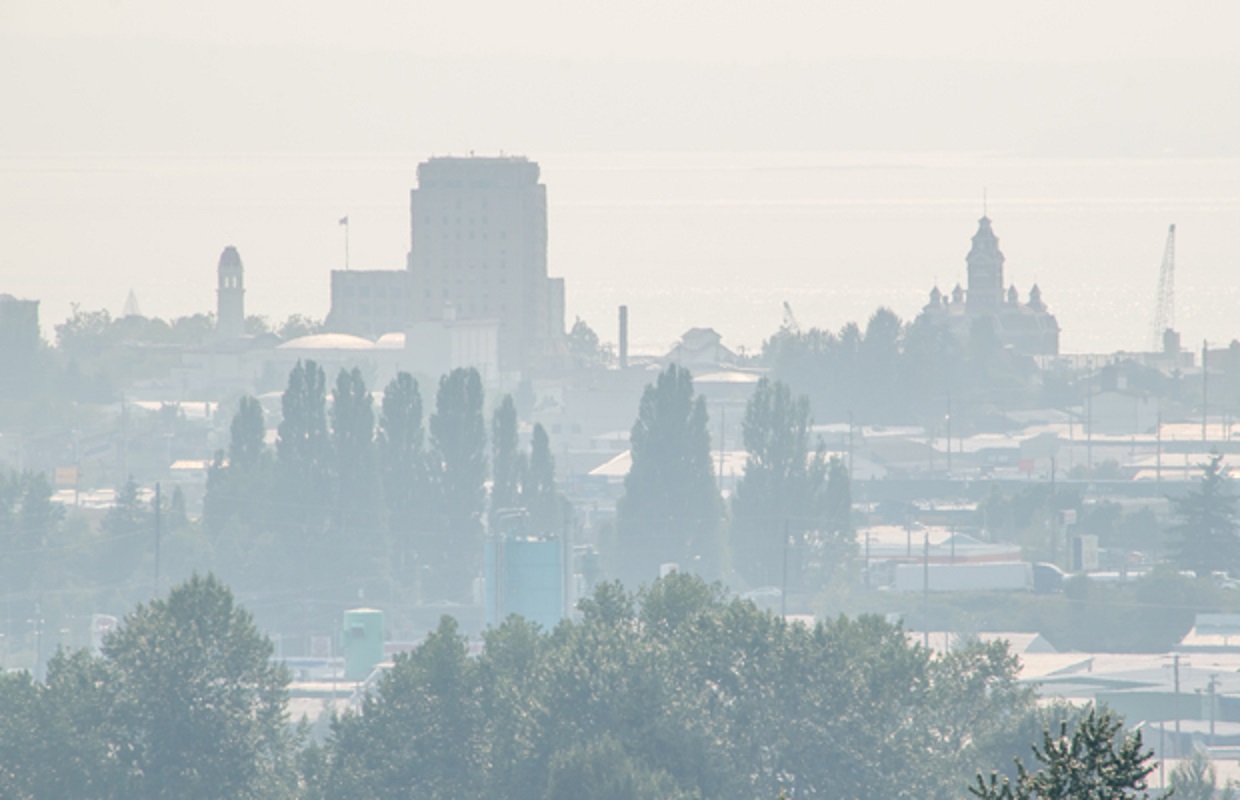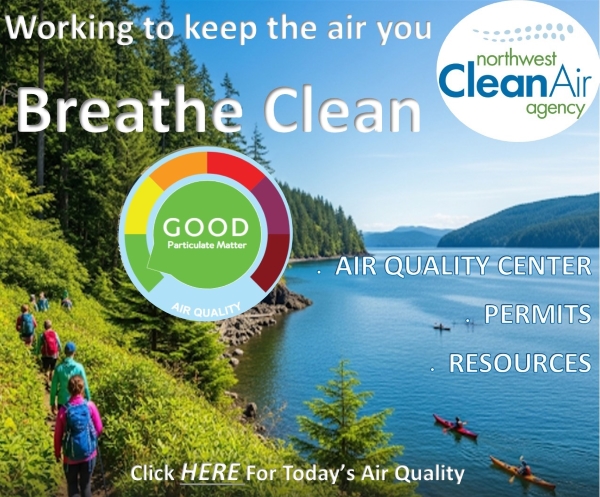We have reached a time of year where we can be exposed to harmful smoke impacts in a variety of ways.
With northwest Washington in a drought, the threat of wildfires remains high. We likely will see more weeks of warm days and dry conditions.
At the same time, nighttime temperatures will start dropping as the season shifts from summer to fall. That means more people are likely to start burning wood in stoves and fireplaces for warmth. And increased wood burning means increased smoke.
Finally, as trees start shedding their leaves and people work to clean up their yards before winter, they may be tempted to pile up lawn debris and light it on fire. So … more smoke.
Keep in mind that smoke is a collection of small airborne particles and gases emitted from incomplete combustion. These microscopic particles, called PM2.5, can be easily breathed in and penetrate deep into your lungs. They can cause a range of health problems, including breathing issues and aggravating chronic heart and lung diseases. Children, seniors, and those with compromised immune systems are particularly vulnerable.
So what can we do about limiting our exposure to smoke, including from wildfires we can’t personally control?
Here are some safety precautions and reminders:
- Limit activities that could spark a fire. Even routine tasks, like mowing the lawn, can prove risky. Dry grasses, brush, and trees can easily ignite from a stray spark, leading to destructive wildfires or structural fires.
- Obey fire restrictions wherever you may be. Be aware that due to dry conditions, fire officials have imposed fire danger burn bans in rural areas of Island, San Juan, Skagit, and Whatcom counties. If you go camping, be sure to check if there are restrictions on campfires.
- Protect your lungs. Make a plan for keeping yourself and others safe when smoke is in the air. Consider wearing a mask. If you have difficulty breathing, be sure to talk with a medical professional.
- Don’t burn lawn debris. In Washington, outdoor burning is banned inside cities and urban growth areas. And wherever you are, consider alternatives to burning. Composting or chipping yard debris can provide benefits for gardening or landscaping. And, by avoiding burning, you’re not producing smoke that impacts air quality, your neighbors, and you.
- If you burn wood for heat, make sure you do it right. Using a wood stove? Burn only dry, clean wood. Wet wood produces more smoke and less heat than dry wood, so you end up burning more of it and continue to produce heavy smoke. Make sure you follow instructions for operating your stove, including not over-filling it with wood and making sure the fire gets plenty of air.
- Never burn garbage. Trash burning has been illegal in Washington for decades. It can release smoke that contains a variety of toxins from garbage.
To keep an eye on real-time air quality conditions, check out the Northwest Clean Air Agency’s Air Quality Center: https://bit.ly/3lXahMq. This helpful tool offers up-to-date air quality monitoring throughout Island, Skagit, and Whatcom counties. And NWCAA will soon be adding monitoring capabilities in San Juan County, which rejoined our agency in July after withdrawing decades ago.
Do your part to avoid adding to the “smoke load” in your community and protect the air we all breathe.







